Fondazione Progetto Arca (Project Ark Foundation) began in 1994 to support marginalized communities in Milan and expanded its offer to migrants in 2011. Since then, it has grown across Italy and internationally. One of its projects focuses on offering a sanctuary for migrant women, children and families in Milan.
Maryam is from Guinea. She left her home country in 2022 and took a long land route through Africa, via Mali, Algeria and Tunisia. Maryam worked for eight months in Algeria and five or six months in Tunisia for the same family, before the discrimination towards sub-Saharan Africans in Tunisia made living a 'normal life' impossible. At that point, she felt compelled to cross the Mediterranean towards the Italian island of Lampedusa.
Two years after leaving her home country, Maryam landed on Lampedusa in April 2024, and was transferred within 48 hours to the northern city of Milan, where she ended up in a community house run by Fondazione Progetto Arca (Project Ark Foundation).
The foundation was set up in 1994 to offer help and support to marginalized communities, including migrants. It has since expanded across Italy and internationally, and began supporting migrants, asylum seekers and refugees as a distinct category in 2011.
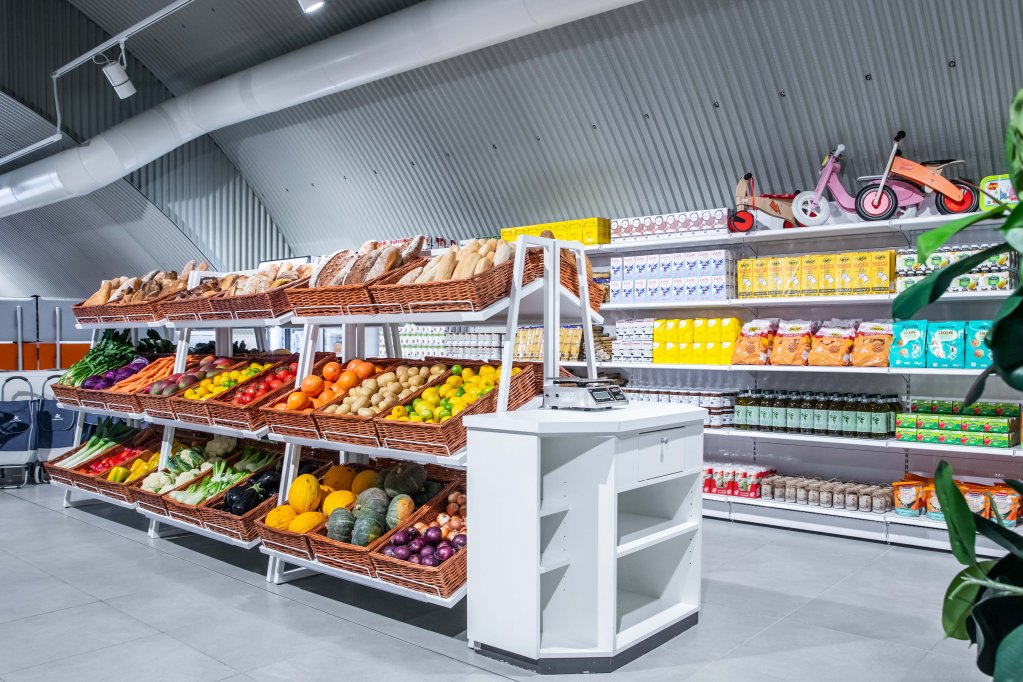
We meet in one of their distribution centers and warehouses, under the railway arches in Milan, a couple of kilometers from the central station. The arch houses a solidarity supermarket and a clothes bank. Outside, a van distributes hot food and drinks to those in need.
Read AlsoNoura's tale: 'In Italy, people give you the feeling you are welcome, and that is so important'
A sanctuary offering support
One of Progetto Arca’s Milanese community houses, where Maryam now lives, works to support women, their children and some nuclear families who are seeking asylum.
"There are currently 209 people living at the center," explains project manager Silvia Scotti. Eighty-three of those in the house are babies and children, "and they will soon be 84," smiles Scotti, as she remembers that one of their residents is about to give birth any day.
The center that Scotti runs in Milan is part of the Italian CAS (Centri d'Accoglienza Straordinaria – first reception centers that are meant to house people through their asylum process, until their cases have been decided) system of reception for migrants and asylum seekers. The center can house up to 220 people and is staffed 24-hours a day. In Italy, associations tend to bid for state contracts to run CAS and SAI centers, that means, if they win, they get state funding, but the foundation also receives private donations to allow it to offer its varied services.
At the center, there are staff running activities, providing food, cleaning, and laundry. There is a doctor, a nurse, and lawyers to help the residents with their official interview processes while applying for documents. There are also educational experts and social workers who help residents navigate the Italian system, find places for their children in school and nursery and gather all the documents they need to put forward in their asylum cases.
"We also have two psychologists. We offer an initial meeting with the psychologist to everyone, and then people can continue to talk for a longer period of time if they want to," explains Scotti.
'Many of the women are traumatized when they arrive'
"Many of the women are traumatized when they arrive with us. It is great that they have the possibility to talk to a psychologist when they need it. Some aren’t immediately ready, but once they feel stronger, they are able to talk more about what may have happened," recounts Scotti.
Many of the women who arrive in centers like that run by Scotti are fleeing violence, she explains. Scotti has been working in the sector for ten years. She estimates that around 90 percent (maybe even more) of the women that travel the migration routes will have suffered sexualized violence or rape during their journeys.
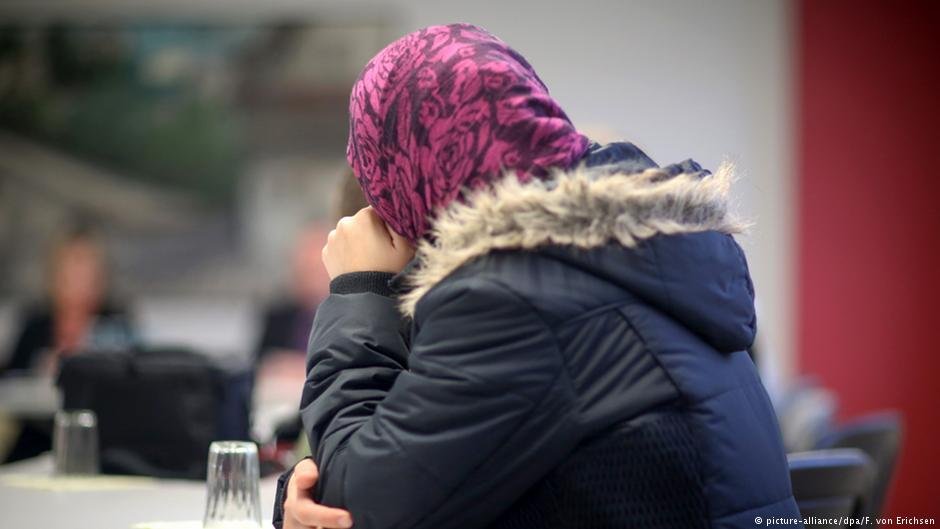
"Some might be fleeing forced marriage. Often, the women who leave their country might have lost their parents fairly early in childhood, and so they are left alone to fend for themselves. That event might end up catapulting them into situations where they are sold or exploited by whoever ends up saying they will look after them. Some have told us that they are fleeing female genital mutilation, especially those who might have given birth to girls. They don’t want their daughters to suffer that fate, and so they decide to leave," says Scotti.
For some women coming from countries like Guinea and Ivory Coast, it is often the death of a maternal figure, the mother or grandmother, who had until that point managed perhaps to hold back some of the more conservative male forces in a girl’s life, that triggers their decision to migrate, explains Scotti.
"Others might be migrating to pay back debts that their parents may have contracted. Sometimes the children are sold to pay back those debts. Others who have arrived more recently may have headed to Tunisia looking for work, but due to the political changes then felt forced out of Tunisia and decided to continue towards Italy and Europe."
Building trust
Some migrants may have been struggling with homosexuality in their home countries, places where being gay might be frowned upon, or even banned, says Scotti. They feel they can’t be free in their own countries. Then there are more general issues of freedom. "We have Afghan women for instance who are fleeing the restrictions placed on them by their society, particularly under the Taliban."
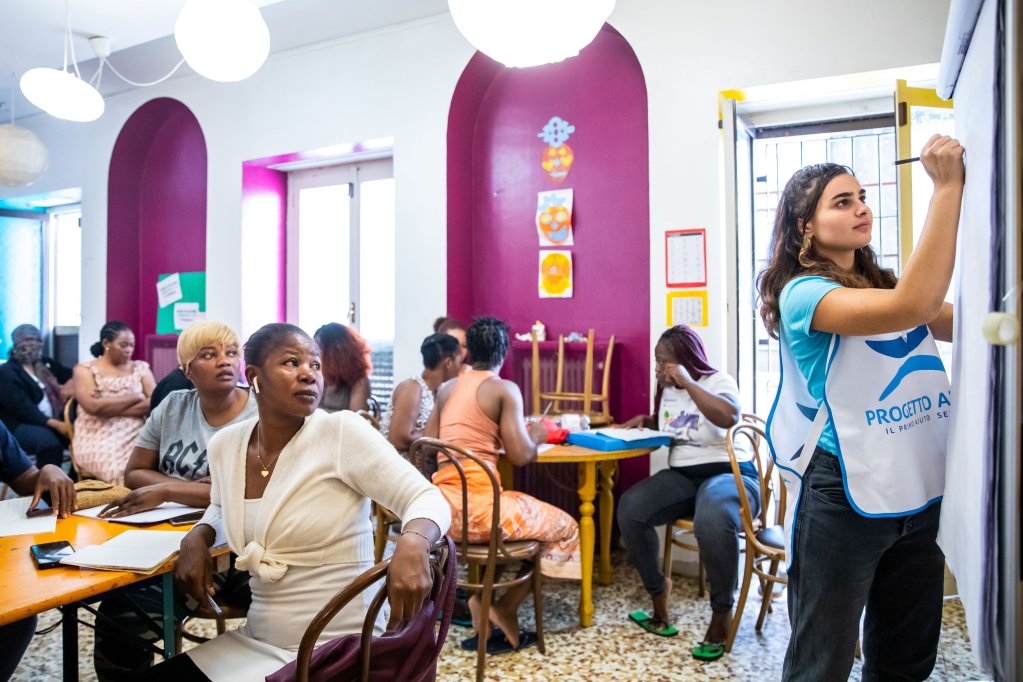
There are also others who are just coming to Italy for economic reasons, and they end up attempting to apply for asylum even though what they really want is a job, says Scotti.
Most of the women leave alone but find people along the way, with whom they can travel. Some find a protector along the way. Scotti thinks that the levels of violence migrants are exposed to along the routes have worsened over the ten years she has been working in the sector. And the psychological violence, kidnapping and blackmailing for ransom, the rape of a female partner to force the male to pay more appear to be occurring more often, says Scotti.
"When women arrive with us, they often don’t trust anyone. We must earn their trust first before we can really begin to build something with them. There is often a real fear of trusting and talking about what happens. And there are lots of post-traumatic stress reactions, panic attacks, flashbacks, all sorts, that result from the traumas they have experienced," says Scotti sadly.
Representation and reality
Although she underlines that it is not possible to compare or rank the routes and violence that migrants might be exposed to, their experience tells them that in Libya in recent years, the violence tends to be more explosive, whereas in Tunisia it can be "exhausting" and continuous, seeping into everyday life.
The Balkan route is also tiring for people because they are often traveling for longer. And migrants have told Scotti and her team that even though they have arrived in geographical Europe, or even in the EU, they may still experience violence at the hands of gangs or sometimes authorities, which leads to them feeling that they are still not safe, despite having reached Europe.
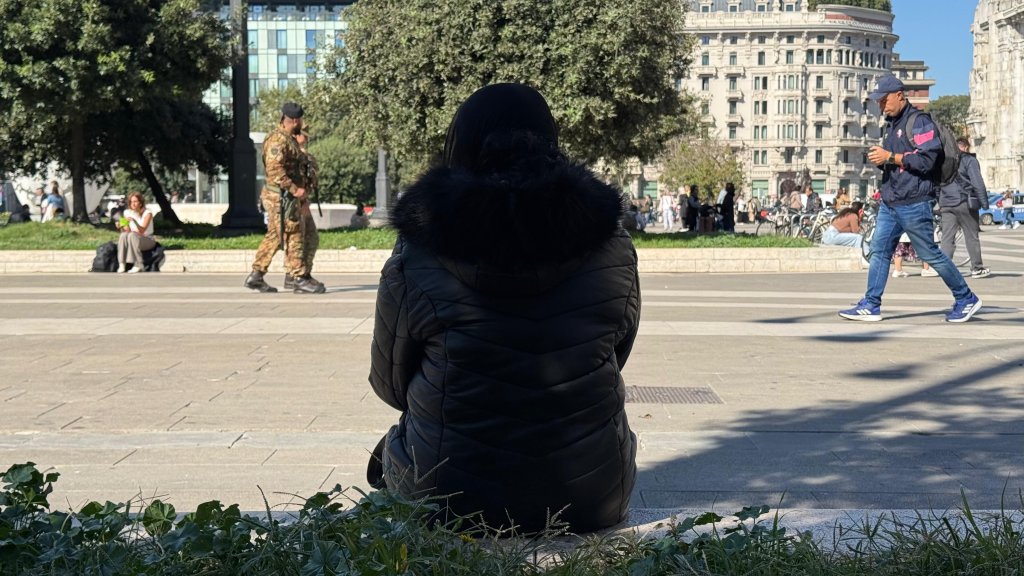
Even though this violence is reported constantly, many of the migrants really don’t know what is waiting for them when they set off, says Scotti. This, she thinks, creates a bit of a vicious circle. Those who arrive in Europe have a huge burden placed on them to send money back, and also send reassurance that they are living a good life. "They often don’t disclose the reality of their situation, the poverty or struggles they might be facing. Instead, they send back pictures of them dressed in their best clothes, in the nicest places in Milan."
This glossing over of reality, leads others still in home countries to believe that they might find streets paved with gold if they take the journey too. And so the cycle continues.
Family and friends at home seem to want to believe this representation too, as they rely on the money sent back. But the struggles for most migrants, even those who find a place in a community house like that run by Progetto Arca are real.
Maryam: 'My life here in Milan is beautiful'
Nevertheless, when Maryam arrived in Lampedusa, she tells InfoMigrants, she felt "immediately safe and good, finally protected." This feeling, she says with a shy smile, only increased when she was transferred to Milan and met the people at Progetto Arca.
Maryam speaks in a mixture of French and Italian. Her seven-month-old son is listening and smiling from his pushchair.
"My life here in Milan is beautiful. I feel good here. I really like it here. People at the project helped me, if I need something they find it for me. I think it is really good. I want to work on integrating here and live a peaceful life here. I hope to be able to find a job.
"The project really helps me because they accompany me to appointments. They helped me with all my maternity appointments, for instance. I have my documents. I have done the Terza Media exam [a state exam in Italy which marks the end of middle school 11-14 and is required to access high school and continue to higher education. Pupils are tested on their level of Italian, math and foreign languages], and I hope to work in logistics."
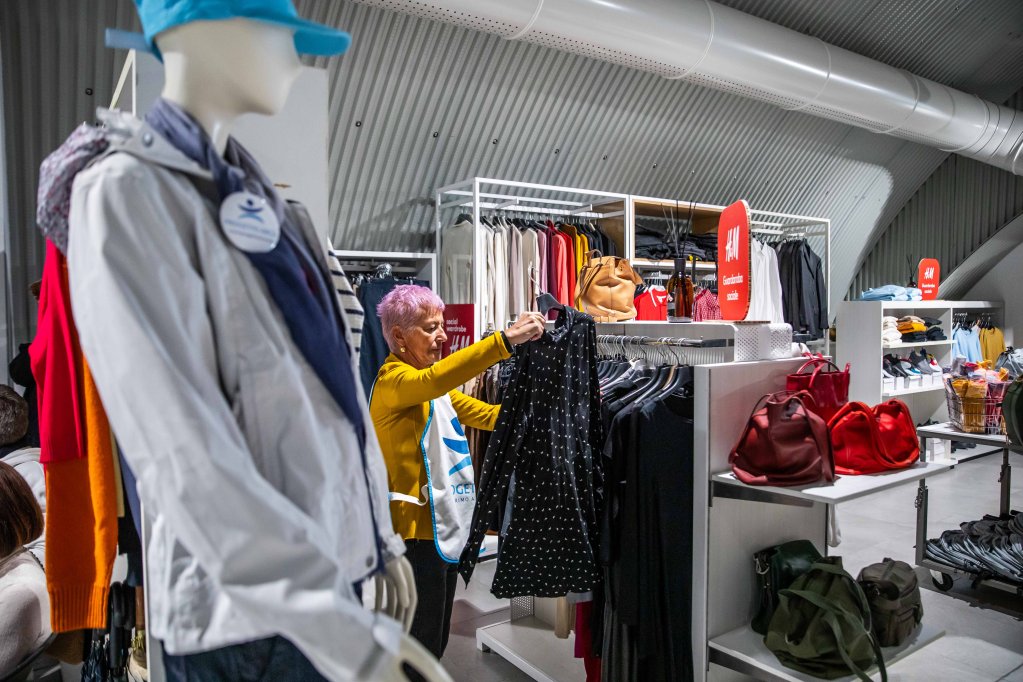
Maryam lights up when she talks about the pizza evening with the community that was held to celebrate her passing her Terza Media exams. She is too humble to say it, but Scotti explains that Maryam actually applied herself to combine three years of study into one year. Maryam explains that she did attend school in Guinea, but given the time it might take to get her documents translated and converted, it was more useful for her to take the Italian exams, so she can begin a training course to access the job she would like to do in logistics.
Scotti says that one of Maryam’s key workers is just finalizing her access to the training course, which should either start in November or January. Once they have signed Maryam up for the course, Progetto Arca will also help find her a nursery place for her son so that she can attend the training.
'We try and place the individual at the center of everything we do'
The smiling faces of women who have found sanctuary with Progetto Arca are testimony to the hard work of the thousands of employees and volunteers who work with the organization.
Costantina Regazzo, spokesperson for Fondazione Progetto Arca and Director of Services at the foundation, explains their foundation works in a very "networked" and joined-up way in the third sector. This, she says, is to make sure that they can provide everything they need to, in order to provide the best start for asylum seekers in their new lives in Italy.
The foundation is hosting around 900 people at the moment in various projects. "We try and place the individual at the center of everything we do," says Regazzo with a warm smile.
The foundation offers all sorts of activities to try and cater for the wishes, needs and interests of its residents and service users. There are choirs, baking and craft courses. The clothes bank and beauty spaces are designed to try and make each individual who might access them "feel good. This allows people who stay in our centers to indulge that need that we all have, to feel good about ourselves, to feel beautiful and to be loved for what we are."
Regazzo says that she and the staff at Progetto Arca have also learned an enormous amount from those who pass through their services. "The 'Syrian emergency' opened my eyes and our eyes to the Arab world and to cultures and ways of doing things that we may not have been so familiar with previously. This is a really beautiful thing," thinks Regazzo.
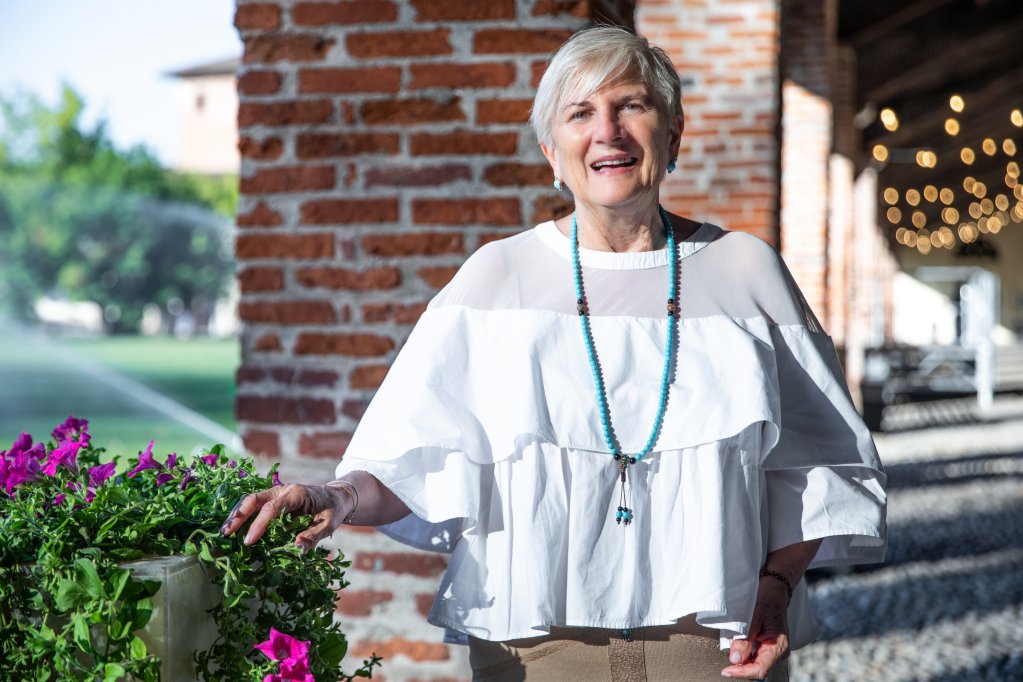
'We need to work together..so these people become a resource for society'
Turning the other cheek, or saying no, is not something that is done by many who work within the foundation. Of course, when you try and do everything for everyone, life can become "very frenetic," admits Regazzo. "We don’t ask people to do something that you can’t sustain. We ask you to respond to the problem, but maybe by finding someone else who can help. That is one of our strengths, I think."
Those at Progetto Arca, says Regazzo, work within the system and within the rules, so that they can offer support and make people feel safe. Knowing your limits is a sign of maturity and responsibility, and allows everyone to know where they are.
It is Regazzo and the foundation’s hope that this joined-up thinking will help Italy in the future construct a multi-ethnic society. "I think trying to stop migratory flows is a utopia," says Regazzo. The Italian job market is crying out for qualified people. The centers and courses run by the foundation are the first step in trying to marry these needs and bring hopes and dreams in line with reality.
"People have always migrated, there have always been wars and reasons to migrate, and others who simply dream of a better life. What we need to do is work together, so these people become a resource for our society."
